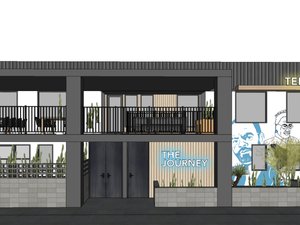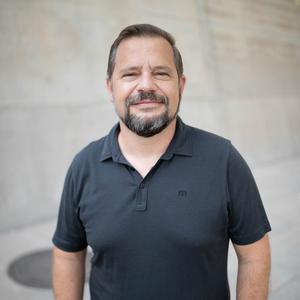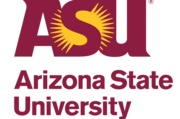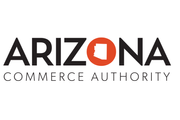While 2022 brought forth uncertain economic conditions and inflationary woes, several Valley-based startups defied those odds by hitting revenue targets, raising capital, hiring employees and launching new products.
AZ Inno is highlighting nine companies poised for growth in 2023 in its annual Startups to Watch list.
Some are looking to build upon big venture capital deals while others are forging new partnerships and further refining their products. Others are looking to expand into new markets.
The list features Arizona companies in varying stages of growth from a broad range of industries – from workplace training to financial literacy to inventing solutions for neonatal care. Although diverse in their sectors and problem-solving solutions, all share a common goal of making the world a better place through innovation.
NeoLight
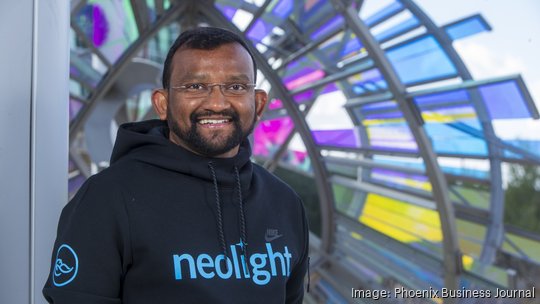
Headquarters: Scottsdale
Founders: Vivek Kopparthi
What it does: NeoLight executive chairman Vivek Kopparthi was among a group of Arizona State University graduates who founded NeoLight in 2014 to cure neonatal jaundice with light therapy.
Since then, the ASU spinout has evolved into an international medical device company that has raised more than $22 million, including funding from former Pittsburgh Steelers quarterback Ben Roethlisberger, who also sits on the company’s board of directors.
In 2021, NeoLight acquired California-based Phoenix Technology Group, which makes ocular screening tools for newborns. NeoLight’s flagship medical incubator, Skylife, gained FDA clearance in 2017 and is now deployed in more than 100 countries.
Latest: In 2022, NeoLight released ROP Check, which is software for pediatric retinal screening to detect and monitor progression of retinopathy of prematurity — an eye disease that can affect premature babies — as part of the company’s expanding product portfolio. The company also acquired Powers Medical Inc.’s Pacifier Activated Lullaby system to address comfort nursing and neonatal abstinence syndrome in newborns. Although Kopparthi did not disclose the company's revenue in 2022, he mentioned it increased by about 500% compared to the prior year.
Why you should watch: “It’s going to be a fun year for us,” Kopparthi said. “I think 2023 is really going to be the year of growth."
NeoLight will continue to expand its products into new U.S. and international markets. The company, which has 40 employees, could boost its workforce by 50% if all the pieces fall into place. It also plans to pursue another round of funding early in the year.
“We’re will also establish a lot of strategic partnerships that will be key and pivotal to our growth," Kopparthi said. "Our goal is to be a leader in our space."
Qwick
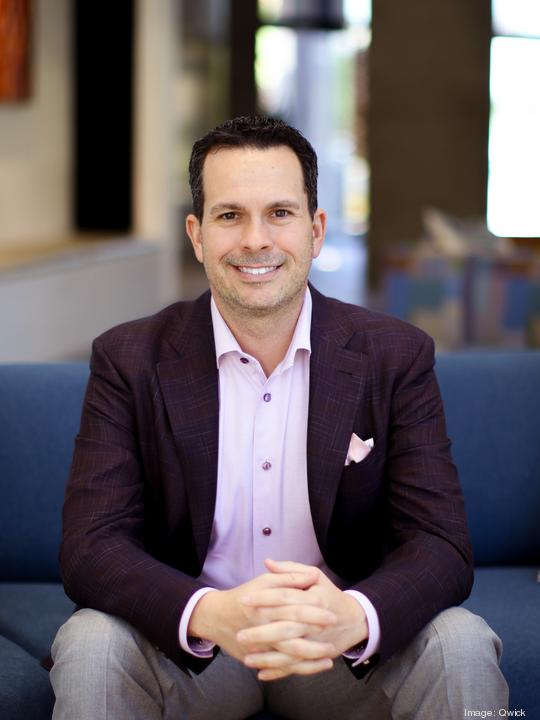
Headquarters: Scottsdale
Founders: Jamie Baxter, Blaine Light and Chris Loeffler
What it does: Qwick, founded in 2018, is a startup with a platform that matches hospitality workers with shifts at restaurants, hotels, catering companies, stadiums, senior living facilities and more via an algorithm that considers availability and location.
Latest: In 2022, Qwick grew the number of hospitality businesses it partners with by 145% and launched in 10 new markets nationwide. Inc. Magazine ranked the on-demand food and beverage labor marketplace No. 32 on its annual list of fastest-growing private companies in the nation, indicating it achieved a growth rate of 10,032% over the past three years. The company hired Gint Grabauskas as its first chief technology officer to oversee engineering and product functions.
In addition, Qwick raised $40 million in a series B round last October led by Tritium Partners, with participation by current investors Album VC, Kickstart, Desert Angels and Revolution’s Rise of the Rest Seed Fund.
Why you should watch: Qwick will continue market expansion in the new year, adding to the 23 cities it already serves. The growth-stage company is also planning to build upon its partnerships with event venues, stadiums and senior living facilities to further grow its platform. Qwick also plans to increase its workforce of 280 employees by 40% in 2023, with emphasis on expanding its sales, technology and operations teams.
Sinatra
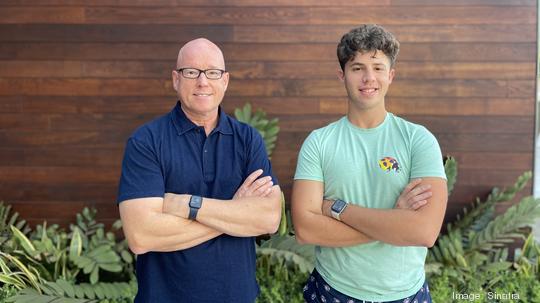
Headquarters: Scottsdale
Founders: Adam Laor, Brian Pierce
What it does: Sinatra aims to revolutionize the hospitality industry with an all-in-one workforce safety, compliance and training app. It allows employers to upload material specific to their establishment for employee training.
Laor, a 20-year-old entrepreneur and Pierce, a hospitality industry veteran, developed the platform out of the idea to use software to hasten pick-up lines at restaurants. The co-founders later realized the potential of building technology for efficiency, savings, and training in the hospitality industry.
Latest: In 2022, Sinatra raised $1.4 million in pre-seed funding from a mix of Arizona-based hospitality investors and San Francisco angel investors as it continued to work on development and launch of its software products. Sinatra has partnered with Bar & Restaurant Insurance, Arizona’s largest bar and restaurant underwriter; Arizona Liquor Industry Consultants; Southern Glazers Wine & Spirits; and Illinois Casualty Cos. Through those partnerships, Sinatra is able to offer legal compliance forms via its app, cutting down training time by weeks.
Why you should watch: The company plans to continue expanding services for the hospitality industry, including scaling its training platform and rolling out a product safety and security suite through its insurance partnerships. The company, which has eight employees, aims to boost its workforce to around 24 people this year. It also plans to pursue a seed round of funding by the end of the second quarter, Laor said.
“Definitely, continuing to improve our product on the training side and doing a seed round is going to be huge because that allows us to begin expanding fast,” Laor said.
My First Nest Egg
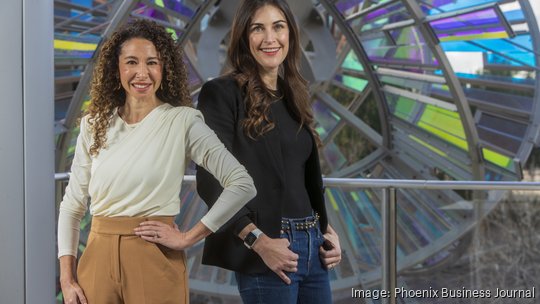
Headquarters: Phoenix
Founders: Nicolle Hood and Annie Shoen
What it does: My First Nest Egg is a digital financial literacy system that teaches children healthy money habits by encouraging achievement, saving and generosity. Hood, a former corporate attorney, and Shoen, a former state prosecuting attorney, launched the company at the height of the pandemic as a way for the two friends to motivate their kids to help around the house and do their schoolwork.
Latest: My First Nest Egg is selling its app, which uses puzzles to track earnings and provide motivation for kids, on Apple and Google Play stores. The company was among 10 awardees of the 2022 Arizona Innovation Challenge and received $150,000, in addition to raising a friends and family funding round in December.
Why you should watch: My First Nest Egg is partnering with financial institutions to co-brand its platform and distribute it to customers at no cost. In February, the company will host a community event with Tempe-based Landings Credit Union to share information about its platform, which will be available to the credit union's members and partner schools.
The company is also planning to roll out Spanish language programming on its platform in early 2023.
"As a female and Hispanic-owned company, we are excited to be expanding financial education to a community that has been disproportionately unbanked/underbanked," Hood said.
Dae Hair

Headquarters: Mesa
Founder: Amber Fillerup
What it does: Fillerup launched Dae Hair in 2020 based on her experience as a hair stylist and consumer. The premium hair care company’s name — an acronym for dawn, afternoon and evening — was inspired by Arizona’s sunsets. Its products are infused with ingredients from desert botanicals.
Latest: Dae Hair raised $8 million in a series A round in 2022 to accelerate its next stage of growth. The funding round was led by San Francisco-based Verity Venture Partners, with participation from West Hollywood-based Digital Brand Architects, Whitney Port, Aimee Song, Christine Andrew, and existing investor Willow Growth Partners, headquartered in Los Angeles.
Why you should watch: Dae Hair has raised $10.6 million since its inception. The company, which has nine employees, plans to double that number in 2023.
Tina Bou-Saba, of Verity Venture Partners, said in December the firm made the investment in Dae Hair based on its potential to scale, calling it one of the fastest-growing, most capital-efficient brands it has seen at its stage in the “prestige hair-care category."
"In 2023, we are set to launch a series of innovations in the hair care category across color care and styling and are taking a fresh look at how we engage our community and clients. [Retail chain] Sephora will be a priority for us — especially in my hometown, which I intend to focus on the most," Fillerup said. "We will invest in a new field team with dedicated folks in the AZ territory. We are also planning to pop up in a few of Sephora’s largest locations for some in-store activations with the brand and our loyalists."
Rosotics
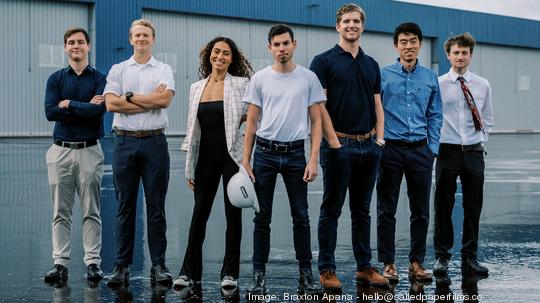
Headquarters: Mesa
Founder: Christian LaRosa
What it does: Rosotics is aiming to overcome limitations of 3D printing for heavy materials industries with its machine called the Mantis, which is modeled after the insect with arms that unfold and stretch, allowing for much larger 3D prints.
The machine uses rapid induction printing, which reduces energy and material requirements for large-scale 3D printing. It allows for larger prints that could be used in the aerospace, construction, marine and energy sectors.
Latest: LaRosa was named as an AZ Inno Under 25 honoree in 2022. Rosotics in November obtained $750,000 in a seed funding round led by Draper Associates — an early-stage venture capital firm based in San Mateo, California — along with participation from Correlation Ventures, Vibe Capital and Sequoia Capital.
Why you should watch: Rosotics, which operates out of a group of hangars at Falcon Field Airport in Mesa, is planning a pilot program with an undisclosed, yet “very major player in the rocket business” in the first quarter of 2023, LaRosa told the Phoenix Business Journal in November. The company is also looking to expand its technology in a variety of industries that use heavy structure manufacturing.
Plannly
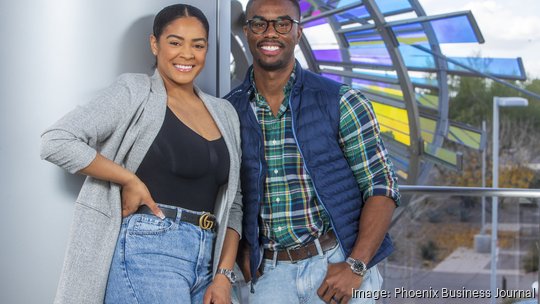
Headquarters: Phoenix
Founders: Alisha and Earl Harris
What it does: The Harrises in 2020 began working on the concept of Plannly, a workplace well-being platform powered by artificial intelligence that allows employees freedom to choose personalized wellness options designed for their needs. The platform also has assessments to unlock lifestyle spending account funds and leverages adaptive machine learning to evaluate the results, catch life changes and recommend benefits.
Latest: In 2022, Plannly completed the Tulsa Techstars Accelerator Program and obtained a pre-seed round of $1.2 million, making it the only company to raise funding before the program ended. The company focused on launching its product and validating it via customers. It spent the fourth quarter of 2022 adding to its vendor relations and sales teams. The company also secured a pilot program with several companies that will launch with about 3,000 of their employees using the app in early 2023.
Why you should watch: Plannly will focus on further developing its product, in addition to growing its sales and customer success teams with plans to hire 10 new employees. It's also looking to raise a seed round in 2023 with partners aligned with the company’s goals and mission, Alisha Harris said.
Persefoni
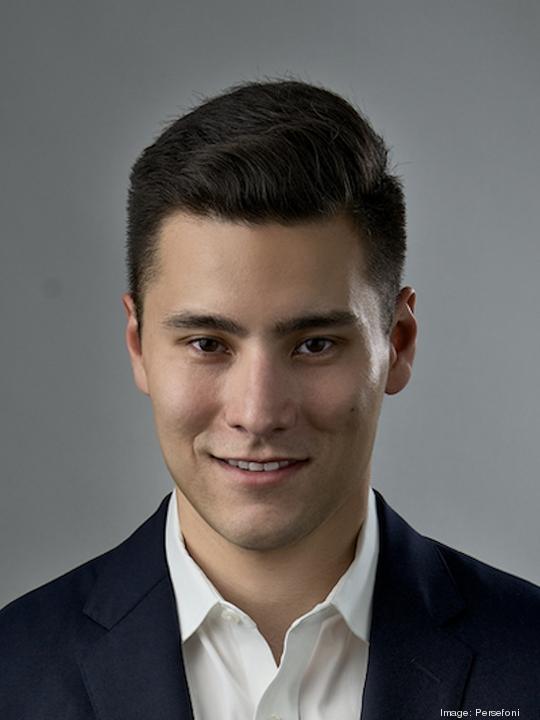
Headquarters: Tempe
Founders: Kentaro Kawamori, Jason Offerman and Kim Stroh
What it does: Persefoni, founded in 2020, is a software firm that helps companies track their carbon footprint through measurements and analyses of emissions using operational, financial and supply chain data.
Latest: In September, the company announced an expansion into Singapore to serve the Asia Pacific Region through its subsidiary, Persefoni Singapore Pte. Ltd., which partnered with Boston-based management consulting firm Bain & Co. to provide carbon accounting solutions from Bain’s Global Sustainability Innovation Center in Singapore. The company also announced a partnership with Deloitte to develop analytics solutions for banking and insurance companies to measure their carbon footprints.
Why you should watch: Since Persefoni launched its platform in 2020, it has undergone rapid expansion and raised $101 million in series B funding in October 2021, marking one of the biggest venture capital investments of that year for a Phoenix-area company. The company also described it as the largest funding round in climate-tech SaaS history. Since 2021, Persefoni's workforce has grown from 34 employees to more than 300 worldwide.
Virtuous Software
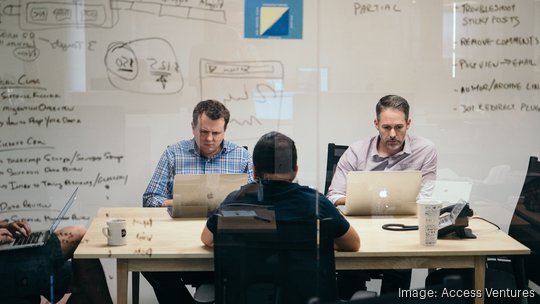
Headquarters: Phoenix
Founders: Gabe Cooper
What it does: Virtuous Software's platform helps nonprofits streamline fundraising, marketing and donor development processes to create more personalized relationships between nonprofits and donors. Some clients include Habitat for Humanity, Meals on Wheels and Catholic Charities.
The company raised $18 million in a series B round in July 2021.
Latest: In 2022, the company’s workforce doubled to more than 140 people. It also acquired VOMO, a platform designed to recruit new volunteers, improve communication and convert volunteers into donors, Cooper said.
Cooper declined to disclose the company’s revenue, but indicated it more than doubled in 2022.
“A huge part of our focus over the past year has been ensuring that we have an amazing customer success team,” Cooper said. “We know that serving nonprofits well takes more than just software. We need a team of people to be successful.”
Why you should watch: While Virtuous is not planning on pursuing additional rounds of funding this year, it will place emphasis continuing to scale by expanding its engineering team and further developing its software.
